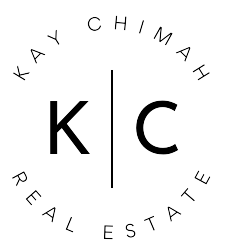Buying a home is one of the biggest financial decisions you’ll ever make, and determining your budget is a crucial first step. Knowing how much you can afford helps you narrow down your search, ensures you’re financially prepared, and makes the entire process less stressful. Here’s how to determine your budget for buying a home, with practical steps to guide you through the process.
Step 1: Assess Your Financial Situation
Start by taking a close look at your current financial picture. This includes:
- Income: Calculate your monthly income, including salaries, bonuses, and any additional sources of revenue. This will help you gauge how much you can allocate toward a mortgage payment each month.
- Debts: Take stock of any existing debts, such as credit cards, car loans, or student loans. Lenders often use your debt-to-income (DTI) ratio to determine how much you can afford, so knowing your DTI is essential.
- Savings: Consider the amount of savings you have available for a down payment, closing costs, and an emergency fund. Ideally, your emergency fund should cover at least three to six months of expenses.
Step 2: Factor in the Down Payment
In Ontario, the minimum down payment requirement varies based on the home’s price:
- 5% for homes costing up to $500,000
- 10% for the portion of the home price between $500,000 and $1,000,000
- 20% for homes priced above $1,000,000
While making a larger down payment can reduce your mortgage payments and potentially eliminate the need for mortgage insurance, it’s crucial to ensure you still have enough savings left for other costs.
Step 3: Consider Mortgage Pre-Approval
Getting pre-approved for a mortgage gives you a realistic understanding of how much you can borrow. The pre-approval process involves a lender evaluating your financial situation, credit history, and debt-to-income ratio to determine how much they are willing to lend you.
Having a pre-approval also strengthens your position as a buyer, especially in competitive markets, as it shows sellers you are serious and financially prepared.
Step 4: Calculate Additional Costs
Buying a home involves more than just the purchase price. Be sure to budget for additional expenses, including:
- Closing Costs: These can range from 1.5% to 4% of the home’s purchase price in Ontario and cover legal fees, land transfer taxes, and other administrative costs.
- Home Insurance: Protect your new investment with homeowner’s insurance, which varies in cost based on the property and coverage level.
- Moving Expenses: Don’t forget to account for moving costs, whether hiring a moving company or renting a truck.
- Ongoing Maintenance and Repairs: Set aside funds for routine upkeep, as well as unexpected repairs.
Step 5: Stick to the 30% Rule
Financial experts often recommend that your monthly housing costs (mortgage payment, property taxes, and insurance) should not exceed 30% of your gross monthly income. Sticking to this guideline ensures that your home purchase remains affordable and doesn’t strain your finances.
Step 6: Leave Room for Flexibility
While it’s important to stick to a budget, leaving some wiggle room is wise. The housing market can fluctuate, and unexpected expenses may arise, so it’s best to avoid stretching yourself too thin.
Conclusion
Determining your budget for buying a home involves assessing your financial situation, factoring in down payment requirements, considering pre-approval, and accounting for additional costs. Sticking to financial guidelines and allowing some flexibility will help you confidently navigate the process.
If you need guidance or want to discuss your budget, feel free to reach out. Together, we can find the right home that fits your financial goals in the Ontario market. Happy house hunting!







